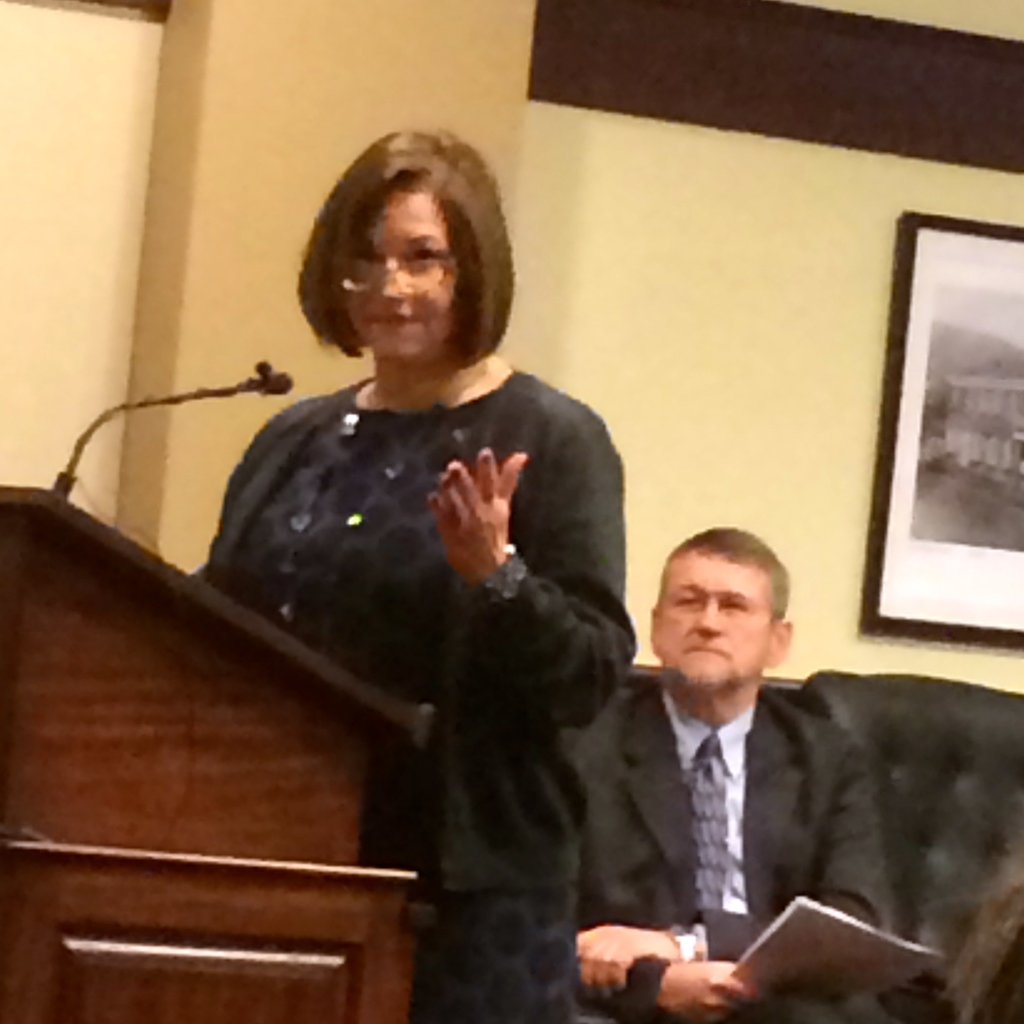
Idaho could put tens of millions of dollars back into public schools — by putting less money into its various savings accounts and forgoing another round of tax cuts.
That’s one recommendation from a retired state economist. He has backing from two former state school superintendents, one a Republican and one a Democrat. And while he concedes he has no mechanism for getting his ideas in the hands of legislative budget-writers, some key lawmakers sound open to running the numbers.
On Monday, Michael Ferguson walked reporters through a document he calls a “responsible alternative” to Gov. Butch Otter’s 2014-15 budget. The news conference comes as the budget-writing Joint Finance-Appropriations Committee holds a week of hearings on education budget proposals — including Superintendent of Public Instruction Tom Luna’s 2014-15 K-12 budget presentation, scheduled for Thursday morning.
And Ferguson’s budget blueprint draws several stark contrasts to the budget Otter presented two weeks ago:
- Ferguson opposes Otter’s plan to put more than $70 million into various state budget reserves in 2014-15. Even without doing this, Ferguson said, the state would end 2014-15 with some $290 million in reserve.
- Ferguson opposes the $30 million in tax relief earmarked in Otter’s budget for tax relief. The unspecified tax cut “doesn’t even have a specific objective,” Ferguson said.
- Ferguson recommends a 4 percent pay raise for teachers and state employees. Otter’s budget recommends no pay raises — a proposal that has already come under fire. A legislative committee has already recommended a 2 percent raise for state employees, and some key lawmakers have said the state should provide similar raises to teachers.
- Ferguson wants to provide another $34.5 million in permanent money for K-12. The 2013-14 budget includes one-time money for merit pay, professional development and school operations, and Otter does not recommend making this money permanent. Ferguson calls this an “artificial reduction” that doesn’t reflect the fact that schools are using this money to pay for day-to-day operations.
By restoring the $34.5 million and raising teacher pay, Idaho could boost its K-12 budget by 8.3 percent in 2014-15; Otter recommends a 2.9 percent increase.
On Monday, Ferguson was flanked by four supporters, including two members of Otter’s own 31-member education reform task force: Cindy Wilson, a teacher at Boise’s Capital High School, and Mike Lanza, the founder of Idaho Parents and Teachers Together, a group that campaigned for the repeal of The 2011 Students Come First education laws. Ferguson also drew support from two former state superintendents: Jerry Evans, a Republican who served from 1979 to 1995; and Marilyn Howard, a Democrat who served from 1999 to 2007.
Evans likened the series of K-12 budget cuts to chopping off a dog’s tail, inch by inch. The changes may not be immediately visible, he said, “but let me tell you, the dog notices. And it hurts every time.”
Budget cuts have had a range of effects, said Howard. Class sizes are up, the school calendar is compressed and more college students are rethinking a career in teaching. “I know education from every aspect — top to bottom, inside and out — and I can tell you that great harm has been done.”
While Ferguson has never held statewide office, he is well-known within Statehouse circles. As the state’s economist, Ferguson spent a quarter century counseling Republican and Democratic governors, including Otter. After his retirement, he founded the Idaho Center for Fiscal Policy, a nonprofit, nonpartisan think tank which launched in 2011.
Whether Ferguson’s budget alternatives will find traction in the Statehouse is open to question. But some key lawmakers told Betsy Russell of the Spokane Spokesman-Review that they would be open to having the state’s nonpartisan budget analysts take a closer look. That list of includes the co-chairs of JFAC, Sen. Dean Cameron and Rep. Maxine Bell, and Senate Education Committee Chairman John Goedde.
“It sounds like something I’d like to see the numbers on,” Goedde, R-Coeur d’Alene, told Russell. “It’s an interesting coalition, if Jerry Evans and Marilyn Howard are both on board.”
No JFAC members attended Monday’s news conference; the only lawmaker present was Sen. Fred Martin, a first-term Republican from Boise.
And Ferguson said his role is largely to examine budget and economic trends — and to package a Plan B for Idahoans who are concerned about education, state employee pay or Medicaid. “It’s to get the word out to folks.”
Click here to read Ferguson’s column.
Disclosure: Idaho Education News is based out of Boise State University and its reporters are state employees. Their salaries are paid by a grant from the J.A. and Kathryn Albertson Foundation, not public tax dollars.
